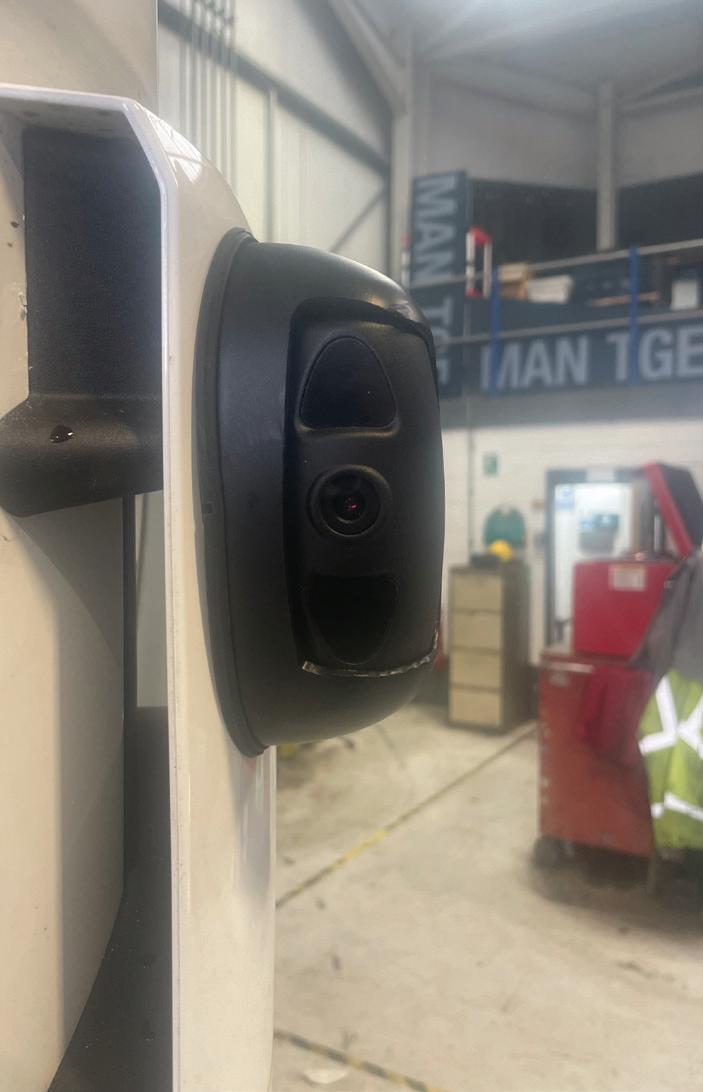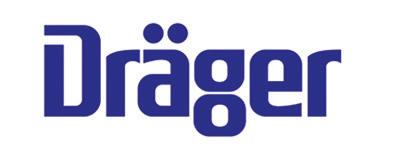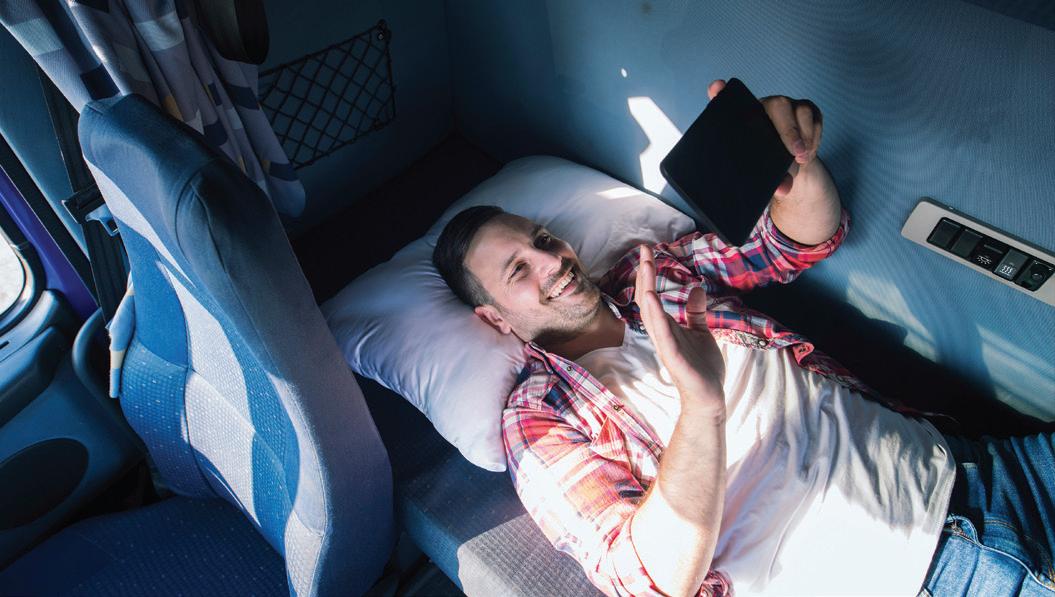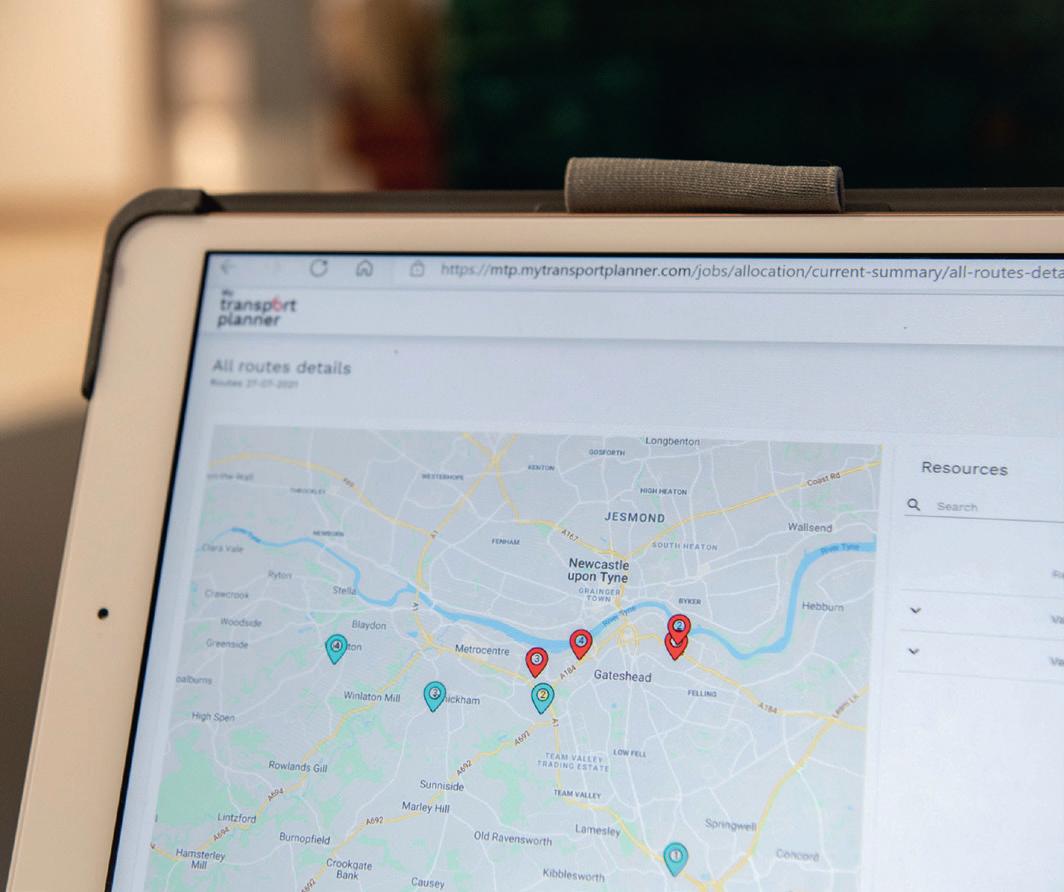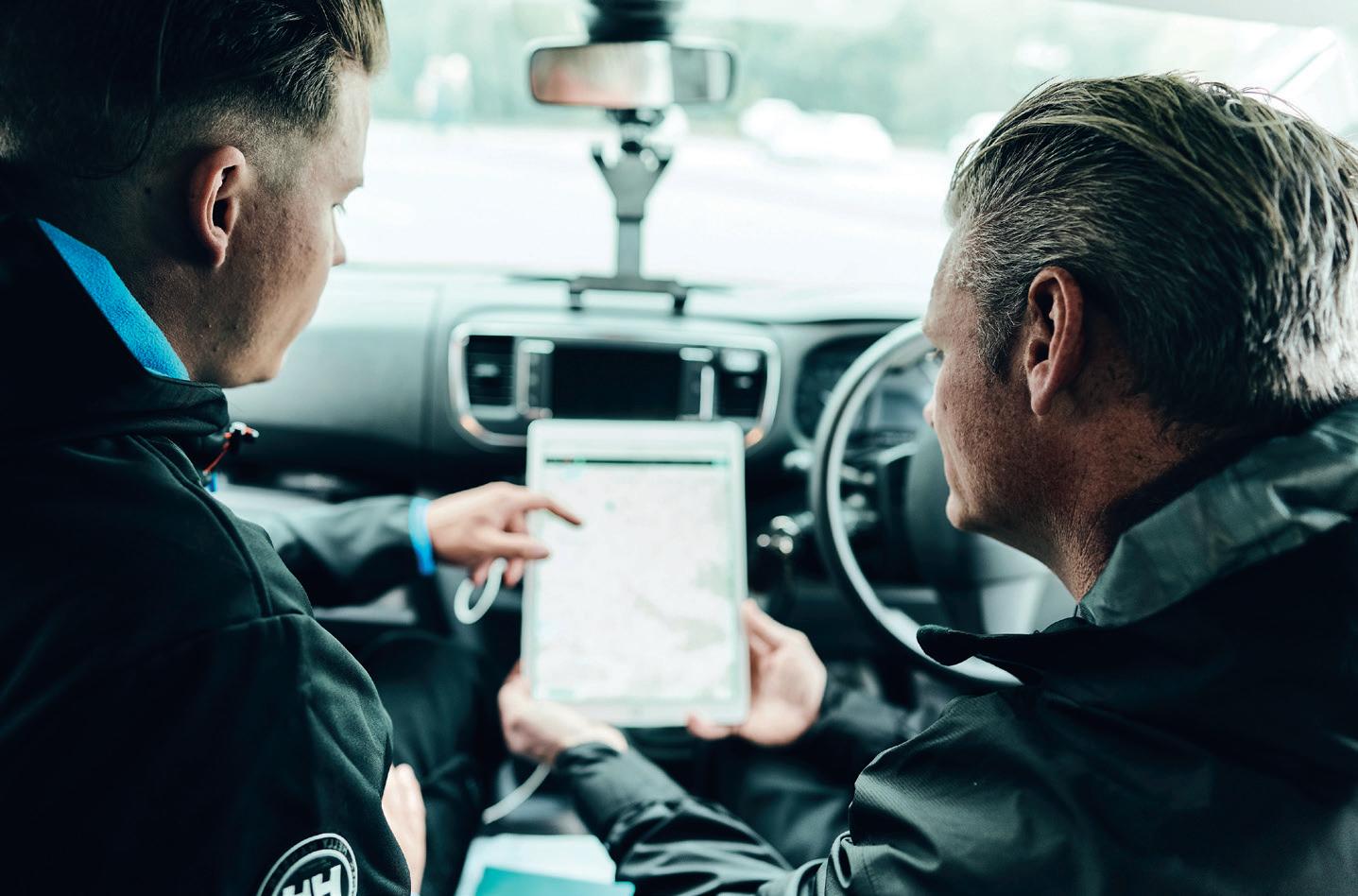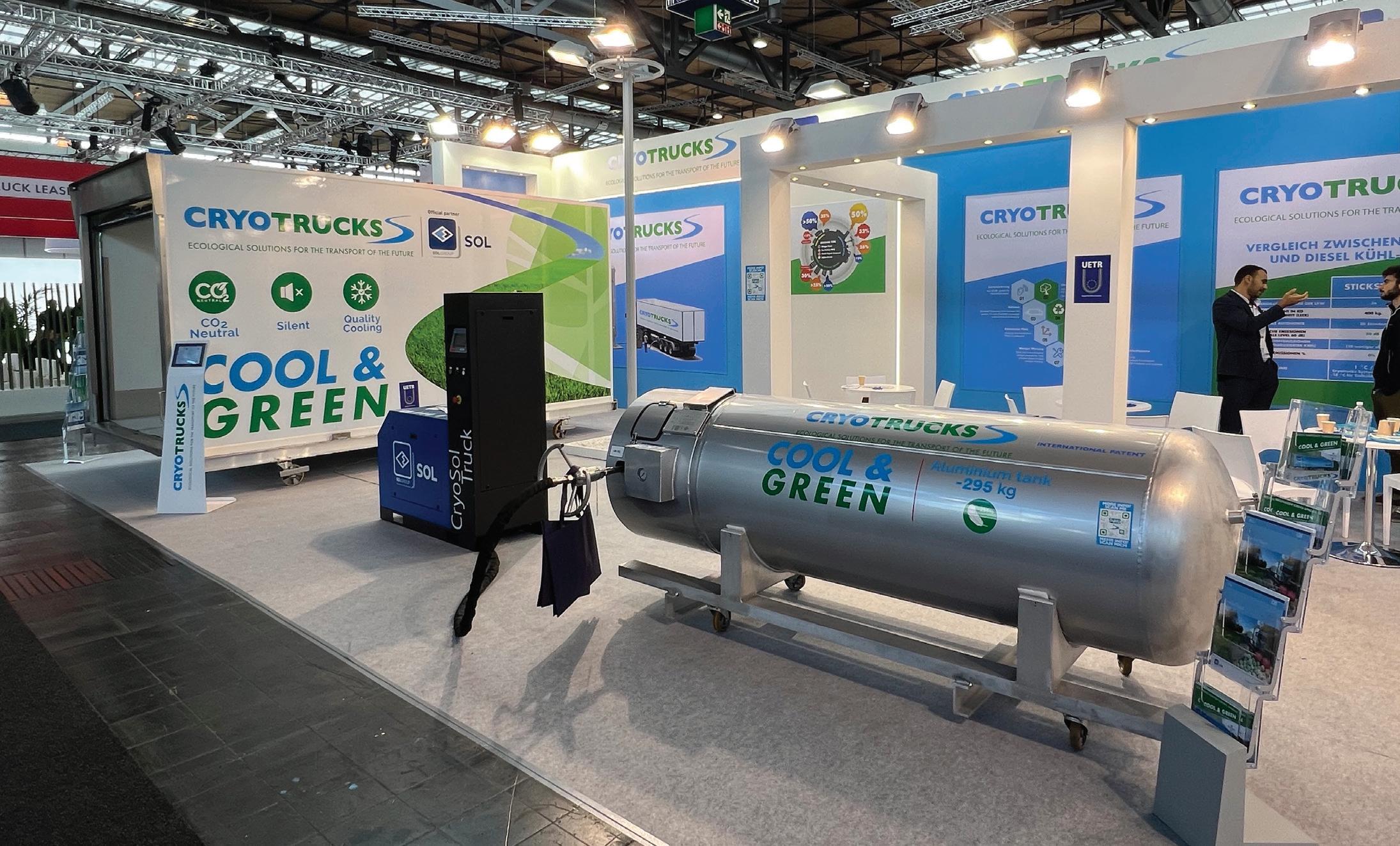
8 minute read
EV vans
from FORS Standard Autumn 2022
by CVMP
The Maxus e Deliver 3 was arguably the first electric van to be launched that was conceived purely as an EV Stellantis offers this electric van with Citroen, Peugeot, Toyota and Vauxhall badges
Words: Steve Banner

WHO’S DOING WHAT WITH EV VANS
With many new electric vans to choose from nowadays, we present a round-up of the latest models on the market and what they offer
There has been an enormous boom in the number of small electric vehicles being brought to market in the last 12 months. With the technology moving so quickly and buyers wary of their capabilities, there is a wide variety of vans in all manner of shapes and sizes to choose from. Here, we review the options from the cheap and cheerful to premium passenger car-based electric vans and hybrids.
Maxus e Deliver 3 Arguably the first electric van to be launched that was conceived purely as an EV, the Maxus e Deliver 3 was nevertheless a big departure for the Chinese-owned firm, whose line-up had previously consisted of both diesel and electric models.
Designed from the ground up as a pure electric van with a heavy focus on its aerodynamic performance, the e Deliver 3 has a claimed range of up to 213 miles for its WLTP city range and 151 miles for the combined WLTP standard. It has the option of two battery packs, with either 35kWh or 50kWh cells, and is paired to a 90KW motor producing 255Nm of torque.
It can carry up to 945kg of cargo and, despite only being available in a short wheelbase, has a volume of 4.8 cubic metres.
Charging times using a DC rapid charger will see the battery level go from 5% to 80% in 45 minutes, while a threephase 11kW AC charge will take around five hours.
Standard features include airconditioning, built-in sat nav, smartphone mirroring with Apple CarPlay and Android Auto compatibility as well as USB and Bluetooth connectivity. Its most appealing feature, however, is its price with models starting from £27,000 ex-VAT with a government grant. Operators can also have the e Deliver 3 as a chassis cab and can get real-time telematic data through a partnership with Geotab.

Citroen e-Berlingo / Peugeot e-Partner / Toyota Proace City / Vauxhall Combo-e The city vans of Citroen, Peugeot, Toyota and Vauxhall have taken the successful underpinnings of the medium-sized electric van from Stellantis and applied it to the compact packaging of its small van range. Built in France for Stellantis siblings Citroen, Peugeot and Vauxhall and also produced on behalf of Toyota, the van leads the small LCV sector with a 171-mile claimed range from a 50kWh battery pack and is paired to a 100kW (136bhp) motor producing 260Nm of torque.
Despite being small, the vans offer a load capacity of 4.4 cubic metres thanks to a load-through bulkhead with folding passenger seat which extends the 3.3 cu m and 3.9 cu m capacities of the standard and long wheelbase vans. The four vans can also have a respectable payload of up to 800kg and have a towing capacity of 750kg. For added versatility, they can be specified with an E-Power take-off system to power conversions such as fridge units. Charging can be carried out using 100kW charger, taking the battery from zero to 80% in 30 minutes. The vans’ cabin is focused around the driver, with an angled 8in infotainment and navigation touchscreen, and includes several premium features such as wireless phone charging and a Surround Rear View system, giving a 360-degree view around the van. In total, there are 18 driver assistance systems designed to make the vehicles safer for both drivers and other road users. Prices start from around £27,000 ex-VAT, depending on the brand.
Renault Kangoo E-Tech / MercedesBenz eCitan / Nissan Townstar Electric The Renault Kangoo is the oldest and most established name in the small electric van field but the latest version shares only its name with the trailblazer model launched in 2012. The latest van returns with a new E-Tech name to reflect the rest of the electrified Renault a

models and is accompanied by two cousins with versions from Mercedes-Benz and Nissan. All three models offer a different take on the electric city van, with Mercedes opting for a more upmarket interior and more standard safety systems than the Renault, while Nissan plays off its warranty support and value. All three vans, however, use the same 90kW motor paired to a 45kWh battery pack. Claimed range for the vans is 186 miles, while charging can be carried out using an 80kW supply to add more than 100 miles in less than 30 minutes. Slower 22kW charging is also possible as well as from a domestic single-phase 7kW supply though a wall box, which is said to take six hours. The van is available in two wheelbase lengths, with the standard van having a 3.9 cubic metre load volume and the long-wheelbase model up to 4.9 cubic metres of capacity. Payload for regular vans will be up to 600kg but thanks to a higher gross vehicle weight, the larger models can transport up to 800kg. They also have a 1,500kg towing capacity. Prices start at around £30,000 exVAT for the Nissan version.
DFSK EC35 Chinese-made DFSK vans have made a comeback in the UK through importer Innovation Automotive, with the quirky midi-van offering a cheap entry-level price to electric van ownership. Starting at £20,999 ex-VAT, the DFSK EC35 looks like a typical Japanese-style microvan with high sides and a narrow width of just 1,680mm. It’s unusual proportions don’t mean it is lacking in space, with a maximum loadspace volume of 4.8 cubic metres and an impressive payload capacity of 1,015kg thanks to its lightweight 1,585kg kerbweight.
It has a hinged rear tailgate and gets twin sliding doors as standard. Power comes from a 60kW (80bhp) motor paired to a 39kWh lithium-ion battery with 200Nm of torque. While options are few and far between, one thing buyers can choose is the maximum speed limit of the van, with a 50mph limited model or a faster 62mph variant. Depending on which version buyers choose will dictate how far they might be able to travel, with a claimed range of 101 miles or 166 miles, according to the WLTP testing cycle, for the slow and fast versions respectively. The DFSK EC35 is able to be charged at a maximum rate of 40kW with the battery level going from zero to 80% in around 60 minutes. Topping up the battery to 100% on a 40kW charger will take 90 minutes, while charging from a 7kW wall box will take six hours. Above:Volkswagen’s ID Buzz Cargo takes its inspiration from the Volkswagen Type 2 campervan

Above:DFSK’s quirky midi-van offers a cheap entry-level price to electric van ownership
Below:The new Renault Kangoo E-Tech also appears with Mercedes-Benz and Nissan badges Toyota Corolla Commercial Hybrid It’s been years since the Vauxhall Astravan disappeared from sale but the Toyota Corolla Commercial Hybrid van more than makes up for the shortfall. Based on the Corolla Touring Sports estate passenger car, it is a full self-charging hybrid electric van. It looks, feels and drives like a car, but has a healthy 1.3 cubic metres of loadspace in place of the rear seats.
Power comes from a 1.8-litre petrol engine and is paired to a 53kW electric motor and together the vehicle produces up to 90kW (120bhp) and 142Nm of torque.
It’s the only engine choice and there’s also only one trim level but the interior is far from a typical commercial vehicle.
The Corolla Commercial gets a decent level of equipment, including heated seats, dual-zone climate control and a reversing camera. There are also LED headlights as standard. When it comes to safety, the Corolla Commercial Hybrid isn’t short on features. It gets adaptive cruise control, high beam assist headlights and lane keep assist as standard.
Lane Trace Assist also helps to keep the van in the centre of the lane, even while turning slight bends, and there’s Road Sign Assist to remind drivers of the speed limits with an audible or visual warning. In the rear, the loadspace floor has a rubber lining and there is a fullheight steel bulkhead to protect the front seat occupants. There’s also an interior light and a 12v power outlet but the important figure is the 425kg payload and 750kg towing capacity. Prices start from £22,149, ex-VAT.

Volkswagen ID Buzz Cargo The Volkswagen ID Buzz Cargo is a brand-new electric van that takes its inspiration from the classic Volkswagen Type 2 campervan. It sits between the Caddy and the Transporter T6.1 in the Volkswagen range in terms of its size and is built on Volkswagen’s shared MEB electric drivetrain platform. Despite being a van, with a load volume of up to 3.9 cubic metres and 650kg payload, the ID Buzz Cargo actually borrows many of its features from Volkswagen’s passenger models, including the ID.3 and ID.4 cars.
A 150kW motor powers the van, producing 310Nm of torque in the process. There is currently just one battery option, a 82kWh unit providing a claimed range of up to 256 miles. Charging from 5% to 80% can be done in less than 30 minutes thanks to a maximum charge rate of up to 170kW on a DC charger.
For those needing more payload, a smaller battery pack size is likely to be added to the lineup, reducing range but pushing capacity to around 750kg. Two trim levels are available, Commerce and Commerce Plus, with entrylevel models receiving a high level of equipment including LED headlights, a heated driver’s seat, front and rear parking sensors, 10in touchscreen and wireless App-Connect for Apple CarPlay and Android Auto.
Commerce Plus models add Adaptive Cruise Control, keyless entry and Park Assist Plus with memory function that allows drivers to effectively record difficult parking manoeuvres to be automatically repeated. There are also safety features including driver assistance systems such as Travel Assist, Lane Assist, Side Assist and Emergency Assist. Prices start from £38,125 exVAT and include three services and an MoT. ■

